 Your new post is loading...
 Your new post is loading...
Edito : Cas d’espèces Sonia Desmoulin-Canselier - Catégoriser le(s) vivant(s) ? Marine Fleury - Une protection en peau de chagrin Léa Clouteau et Lara Danguy des Déserts - CJIP : l’arbre qui cache la forêt Dorian Guinard - Pouvoir de vie et de mort sur la biodiversité Sébastien Mouret et Juliette Augerot - L’abattoir mobile : reconstruire le travail vivant entre éleveurs et animaux Anouk Ferté-Devin - Biodiversité forestière, à la croisée des droits Frédéric Keck - Santé animale et droit des humains : biopolitique des zoonoses
Via dm

|
Scooped by
DocBiodiv
|
Les rangers portent différents titres à travers le monde - de garde forestier à gardien de la faune sauvage. Ils viennent de grandes villes, de petits villages et de communautés indigènes. Cependant, ils ont une chose en commun : ils sont indispensables à la protection de la nature. Ce mois-ci, nous célébrons les rangers et la diversité de leurs emplois et de leurs rôles dans la protection de la planète.

|
Scooped by
DocBiodiv
|
Almost two years since the start of the Covid-19 pandemic, scientific breakthroughs powered by international collaboration have helped us create vaccines and other treatments that can help tackle the health crisis. But our broken relationship with the natural world continues to make us vulnerable to pandemics and that is something that global governments and businesses need to fix. Both habitat loss and the wildlife trade increase the likelihood that diseases will make the jump from animals to humans.

|
Scooped by
DocBiodiv
|
Marseille, France, le 10 septembre 2021 (IUCN) – Le Congrès mondial de la nature de l’UICN s’est conclu aujourd’hui à Marseille et en ligne, fixant l’ordre du jour de la conservation de la nature pour la décennie à venir et au-delà. Le Congrès de l’UICN a instamment appelé les gouvernements à mettre en oeuvre une reprise post-pandémie fondée sur la nature, en investissant au moins 10% des fonds mondiaux pour la reprise dans des projets liés à la nature, et a adopté une série de résolutions et d’engagements visant à lutter de manière urgente contre les crises interconnectées du climat et de la biodiversité.

|
Scooped by
DocBiodiv
|
Gland, Suisse, 11 mars 2021 (UICN) – La pandémie a eu de répercussions importantes sur la conservation de la nature dans le monde entier, y compris les pertes d’emplois parmi les gardes-forestiers des aires protégées, la réduction des patroilles de lutte contre le braconnage et les réductions de la protection de l’environnement selon une collection de nouveaux documents de recherche publiés ajourd’hui par l’UICN dans un numéro spécial de PARKS, la revue de la Commission mondiale de l'UICN sur les aires protégées.

|
Scooped by
DocBiodiv
|
PODCAST - Le président du Muséum national d'Histoire naturelle est l'invité de "L'Interview inattendue". Bruno David publie "À l’aube de la sixième extinction", un plaidoyer pour le vivant sous toutes ses formes.
Le Global Safety Net combine six différents indicateurs de données primaires : les zones protégées déjà existantes, les habitats abritant des espèces rares, les zones riches en biodiversité, les sites habités par de grands mammifères, les vastes régions sauvages encore intactes et les environnements naturels capables d’absorber et de stocker une large quantité de carbone. […]
Via Hubert MESSMER , Les Sentinelles du climat

|
Scooped by
DocBiodiv
|
We know from science that we need to protect 30 percent of the planet’s land and oceans by 2030 to stop biodiversity loss, and we need to limit global warming to 1.5°C to keep the planet habitable. We also know that we have a short time frame to transform the way we live to the degree that is needed – and knowing where to begin can be difficult in the midst of crisis. The good news is that there is a strong economic rationale for making this shift. The benefits of investing in protecting nature outweigh the costs at least fivefold, with dividends including flood protection, clean water provision, soil conservation and avoided carbon emissions. Additional protections are expected to lead to an average of $250 billion in increased economic output and $350 billion in improved ecosystem services annually.
The COVID-19 pandemic is impacting all parts of human society. Like everyone else, conservation biologists are concerned first with how the pandemic will affect their families, friends, and people around the world. But we also have a duty to think about how it will impact the world's biodiversity and our ability to protect it, as well as how it might affect the training and careers of conservation researchers and practitioners.

|
Scooped by
DocBiodiv
|
Conference theme :
Balancing human resource exploitation and nature conservation, Sustainable ecosystems and human well-being, Effective and equitable management of terrestrial and aquatic ecosystems.

|
Scooped by
DocBiodiv
|
Is there a way to simultaneously advance conservation and human health, especially in low- and middle-income countries? That goal has attracted considerable recent attention among biologists, land managers, public health practitioners, and even policy makers. One major focus of this debate has surrounded the suggestion that biodiversity conservation may systematically decrease infectious disease risk for diseases carried by wildlife through specific ecological mechanisms.
|

|
Scooped by
DocBiodiv
|
Twenty-five years since foundational publications on valuing ecosystem services for human well-being1,2, addressing the global biodiversity crisis3 still implies confronting barriers to incorporating nature’s diverse values into decision-making. These barriers include powerful interests supported by current norms and legal rules such as property rights, which determine whose values and which values of nature are acted on. A better understanding of how and why nature is (under)valued is more urgent than ever4. Notwithstanding agreements to incorporate nature’s values into actions, including the Kunming-Montreal Global Biodiversity Framework (GBF)5 and the UN Sustainable Development Goals6, predominant environmental and development policies still prioritize a subset of values, particularly those linked to markets, and ignore other ways people relate to and benefit from nature7. Arguably, a ‘values crisis’ underpins the intertwined crises of biodiversity loss and climate change8, pandemic emergence9 and socio-environmental injustices10.

|
Scooped by
DocBiodiv
|
Marion Vittecoq et Michel Gauthier-Clerc co-signent le chapitre d’ouverture « Au-delà des pathogènes, l’écologie de la santé au service de la conservation en Camargue » du livre intitulé « Sortir des crises – One Health en pratiques » publié aux éditions Quae. L’approche One Health consiste à souligner les interdépendances entre la santé humaine, la […]

|
Scooped by
DocBiodiv
|
Environ 2 000 des 11 000 espèces d'oiseaux du monde migrent, certaines couvrant d'énormes distances, comme la sterne arctique ou la barge à queue barrée, qui parcourt jusqu'à 11 680 kilomètres sans escale entre l'Alaska et la Nouvelle-Zélande. "Les oiseaux, et en particulier leur chant, ont été une véritable source de réconfort pour de nombreuses personnes dans le monde pendant la pandémie de COVID-19, nous reconnectant avec la nature", déclare Jacques Trouvilliez (AEWA).

|
Scooped by
DocBiodiv
|
As a source of emerging infectious diseases, wildlife assemblages (and related spatial patterns) must be quantitatively assessed to help identify high-risk locations. Previous assessments have largely focussed on the distributions of individual species; however, transmission dynamics are expected to depend on assemblage composition. Moreover, disease–diversity relationships have mainly been studied in the context of species loss, but assemblage composition and disease risk (e.g. infection prevalence in wildlife assemblages) can change without extinction.

|
Scooped by
DocBiodiv
|
Covid-19 is taking a "severe toll" on conservation efforts, with multiple environmental protections being rolled back, according to research. Conservation efforts have been reduced in more than half of Africa's protected areas and a quarter of those in Asia, said the International Union for Conservation of Nature (IUCN).

|
Scooped by
DocBiodiv
|
Préalablement au Congrès mondial de la nature, les membres de l'Alliance nationale de recherche pour l'environnement mobilisera l'ensemble des communautés scientifiques afin d’aborder collectivement le thème de la « conservation de la biodiversité » au travers de grandes questions transversales et pluridisciplinaires.

|
Scooped by
DocBiodiv
|
La pandémie actuelle et ses impacts économiques auraient accéléré la déforestation dans de nombreuses zones tropicales. Cette déforestation accrue augmente les interactions entre faune sauvage et activités humaines, et donc les risques d’émergence de nouvelles épidémies. Dans un « policy paper » de Perspectives in Ecology and Conservation, une équipe de chercheurs met en garde contre le cercle vicieux qui s’installe. Les maladies zoonotiques, la santé publique, l'économie, l'agriculture et la gestion des forêts y apparaissent tous intrinsèquement liées.

|
Scooped by
DocBiodiv
|
The ocean is the linchpin supporting life on Earth, but it is in declining health due to an increasing footprint of human use and climate change. Despite notable successes in helping to protect...

|
Scooped by
DocBiodiv
|
We brought together a team of wildlife trade researchers and the Conservation Optimism team to provide evidence-based and hopeful stories during the current pandemic ! Conservation Optimism is a global community dedicated to inspiring and empowering people around the world to make a positive difference for nature.
Conservation News spoke to renowned ecologist and Conservation International scientist Lee Hannah about how giving nature space could help curb future disease outbreaks.
Via AgroParisTech Documentation Nancy

|
Scooped by
DocBiodiv
|
Risky times and risky places Predator–prey interactions, such as between cheetahs and zebras in Liuwa Plain National Park in Zambia, reveal the relationship between types of risk. In locations with high long-term risk, prey vigilance was strong when short-term risk was also high but not when short-term risk was low. See Dröge et al. 1, 1123–1128 (2017)

|
Scooped by
DocBiodiv
|
Studies have found that unchecked deforestation and species extinctions will directly impact human well-being.Even little-known species can provide surprising benefits for humans, such as drugs that combat cancer.The benefits of protecting species may not be immediately evident, but the countless ecosystem services many animals and ecosystems provide make wildlife conservation worth the time and money.
|
 Your new post is loading...
Your new post is loading...
 Your new post is loading...
Your new post is loading...













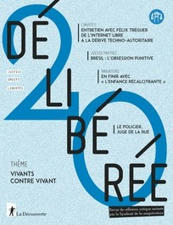

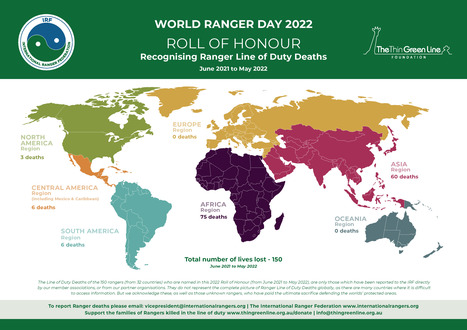
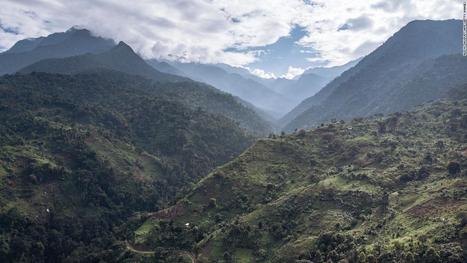
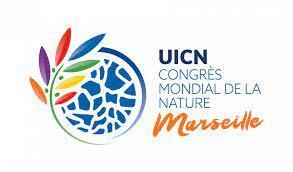

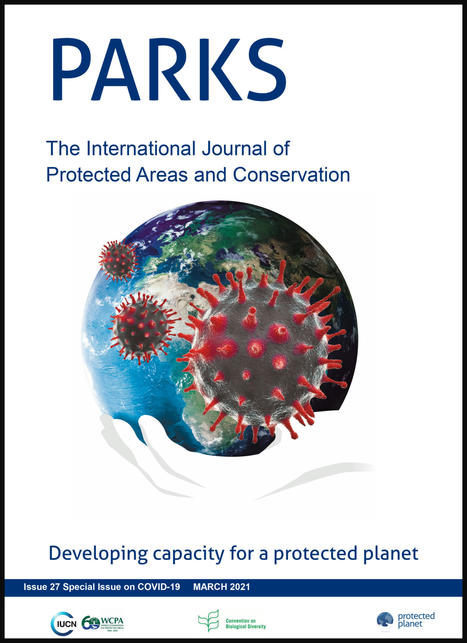

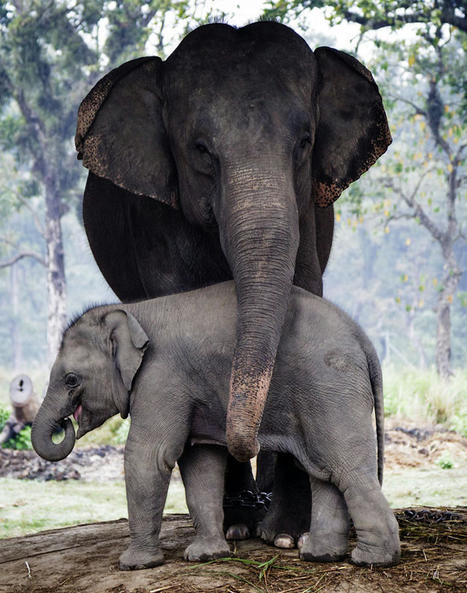
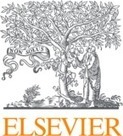


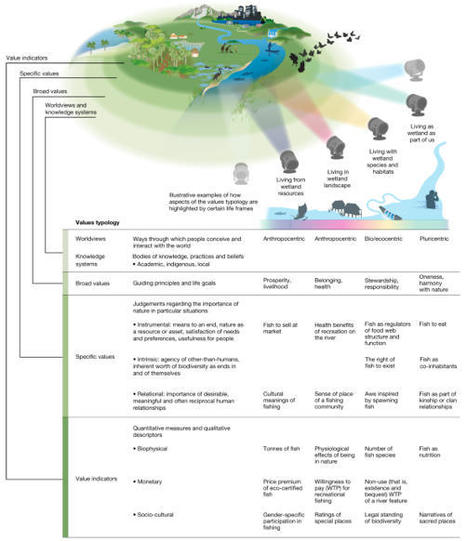
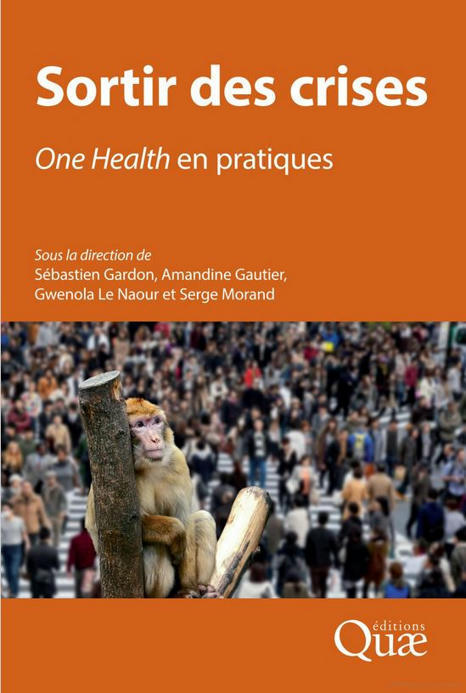

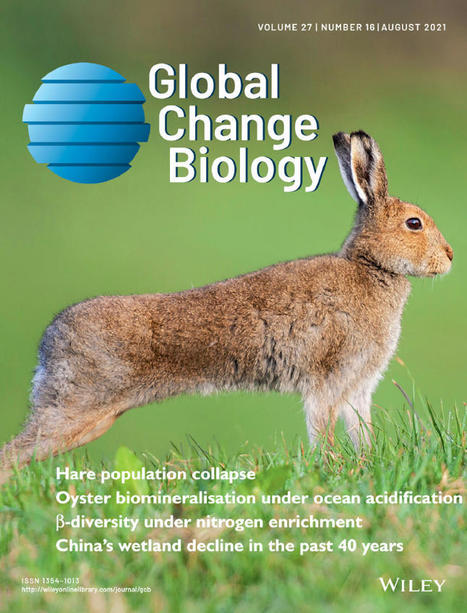
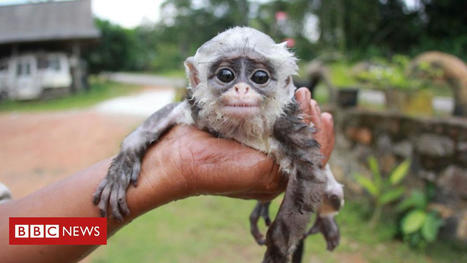

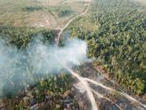
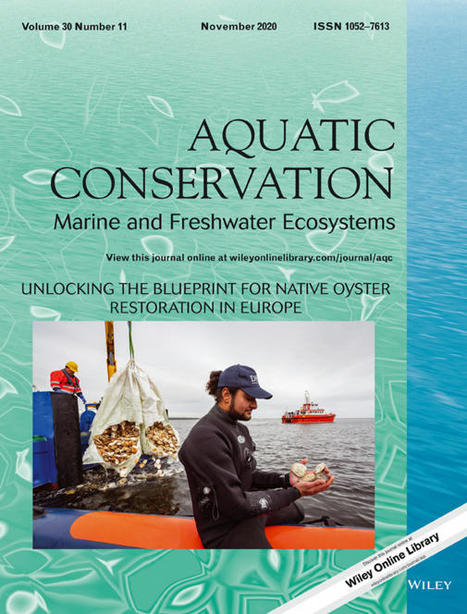

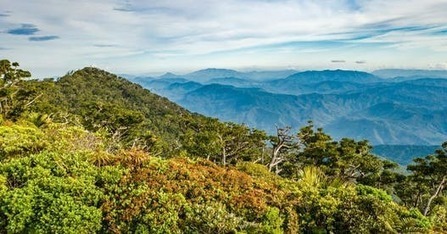
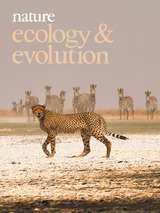






La Découverte - Décembre 2023